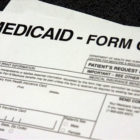Can You Have Private Insurance and Medicaid?

Although most people have Medicaid or private insurance, millions of Americans now opt to have both. It is referred to as dual coverage.
Private insurance does not affect your eligibility for Medicaid. Rather, Medicaid eligibility varies from state to state depending on your income and the state’s eligibility criteria. However, coverage terms and scope vary when you have dual coverage.
This article will discuss how Medicaid and Private insurance dual coverage work, the benefits of having both, and how to choose the right private insurance plan to complement your Medicaid plan.
How Does Having Both Medicaid and Private Insurance Work?
If you have private insurance and Medicaid simultaneously, private insurance acts as primary insurance, while Medicaid serves as secondary insurance. In most states, the third-party liability policy provides that Medicaid acts as a last resort for most services.
Therefore, private insurance is generally required to pay for medical costs before Medicaid. Medicaid is additional or supplemental coverage for services covered by private insurance.
Medicaid may cover some or all of the remaining costs depending on your Medicaid eligibility and income level. In certain circumstances, Medicaid may make arrangements with your private plan provider for them to pay for Medicaid-covered services.
Advantages of Having Both Medicaid and Private Insurance
There are several advantages to having both Medicaid and Private insurance as follows.
Wider Coverage
Having both Medicaid and private insurance gives you access to a wider range of medical services than either of the programs individually. For example, private insurance may cover specialist healthcare services that may not be covered under Medicaid.
On the other hand, Medicaid covers for homecare and long-term care, which some private health insurance plans do not provide access to. Also, if you are enrolled in Medicaid, prescription drug coverage may be limited. On the other hand, many private plans offer extensive prescription drug coverage.
The extent of coverage by Medicaid varies from state to state and the specific plan. However, it generally includes coverage for the following:
- Outpatient hospital services
- Inpatient services
- Laboratory and X-ray services
- Family planning
- Physician services
- Preventative and diagnostic services
- Home care and nursing care services
- Prescription drugs
- Dental and optical services for children
- Mental health services
- Physical therapy
- Occupation therapy
On the other hand, private insurance may cover the following:
- Inpatient hospital care
- Outpatient services
- Prescription drugs
- Emergency services
- Mental health services
- Diagnostic tests and procedures
- Preventative care such as screenings and checkups
- Maternity and newborn care
- Dental, vision, and hearing treatments, including hearing aids and eyeglasses
- Rehabilitation services such as physical therapy, speech therapy, and occupational therapy
- Additional benefits such as wellness programs, alternative medicine, etc.
Lowers Out-of-Pocket Costs
Since both plans offer expanded coverage, there are fewer services for which you would need to pay for copayments, co-insurance, and deductibles. Or, where applicable, the payable out-of-pocket costs would be lower.
Increased Access to Healthcare Providers
Medicaid and private insurance plans combined provide access to a broader network of providers than either program alone. For instance, you can see a provider who accepts Medicaid alone and vice versa.
Better Financial Protection
In the event of a major illness or catastrophic event, dual coverage lowers your financial risk.
Challenges of Having Both Medicaid and Private Insurance
Although Medicaid and private insurance dual coverage have numerous benefits, there may be some challenges. The main one is that it can be difficult to coordinate both plans. In some circumstances, it may not be clear which provider should cover the healthcare costs.
As a result, the claim process may be complicated, whereby some private insurance plans may not coordinate with Medicaid. In some instances, where the scope and extent of coverage by each provider are unclear, you may have to pay for the out-of-pocket services and seek reimbursement.
Also, you may find that in some instances, a healthcare procedure should be covered partially by both programs. However, there may be different panels of providers. This would make it difficult to access medical services, or you would have to pay the other provider’s costs out of pocket.
Therefore, it is important to review both of your health plans carefully to understand what each covers, the claim processes, and billing. Doing so ensures you get the best possible care while reducing your out-of-pocket costs.
What Is Covered by Medicaid but Not Private Insurance?
Some services are covered extensively by Medicaid but not private insurance. These include:
- Long-term care services such as nursing homes, in-home care, and assisted living facilities
- Community-based services such as respite care, adult day care, personal care services, etc.
- Family planning services
- Dental services. Although some private insurance plans cover dental services, Medicaid covers a broader range of services, including restorative care, orthodontics, and preventative care
- Mental health and substance abuse treatment
What Is Covered by Private Insurance but Not Medicaid?
On the other hand, some medical services are covered by private insurance but not Medicaid. They include:
- Cosmetic procedures such as plastic surgery and dental implants. Medicaid considers these procedures elective and does not cover them. That said, some but not all private insurance plans cover cosmetic procedures. Even those that do require high premium payments and high out-of-pocket costs may apply.
- Some private insurance plans may cover alternative medicine, e.g., acupuncture and chiropractic care.
- Private hospital rooms. Typically, Medicaid only covers shared rooms.
- Out-of-Network healthcare providers. Most private insurance companies stipulate a specific network of providers for different healthcare services. However, some allow you to seek treatment out-of-network, but you may be required to pay higher out-of-pocket services. On the other hand, Medicaid strictly requires that you see healthcare providers in the network providers in your state. There are a few exceptions whereby you can see a provider out of the network, but pre-authorization is required. For example, if you require to see a specialist out of the network, you should be referred by a doctor within the network.
How to Choose the Right Private Insurance for Dual Coverage With Medicaid
Here are tips for choosing a private insurance plan to go with your Medicaid coverage.
- Go for a plan that coordinates well with Medicaid. Choose a private insurance plan whose provider has contracts with Medicaid to offer coordinated care to members eligible for dual coverage. Such plans make accessing, billing, and paying for your health care services easy.
- Check if the plan offers extra benefits. You want the two plans to offer you as wide a coverage as possible. Therefore, assess the scope of coverage for the private insurance plan and whether it has extra benefits such as dental, vision, and hearing coverage, which may not be covered comprehensively under the Medicaid program.
- Consider the cost of the health insurance plan. Different private insurance plans have different premiums, copays, and deductibles. Typically, the lower the premium and out-of-pocket costs, the narrower the scope of coverage and vice versa. Ultimately, compare the various plans and choose one that fits your budget.
- Consider if you have specific health care needs. For instance, if you require ongoing dental care, you must prioritize plans offering comprehensive dental coverage. Similarly, if you are continually taking prescription drugs, go for a plan that includes the medicine in its formulary. Review the plan’s benefits and whether it caters to your top medical care needs.
- Check the network of providers. Confirm if your preferred providers are listed in the network of providers. Also, it is preferable to go for a plan whose network of providers overlaps with Medicaid’s network of providers.
- Consult with a Medicaid caseworker or insurance agent. If you are unsure which private insurance plan would be ideal for you, seek advice from a Medicaid caseworker or insurance agent. They will help you understand the various options and make an informed decision to choose a plan that meets your needs and suits your budget.
Does Private Insurance Affect Your Eligibility for Medicaid Coverage?
Having private health insurance coverage does not necessarily disqualify you from Medicaid coverage. However, it may affect how your need for healthcare support is perceived. One of the key eligibility criteria for Medicaid is your income. Having a private insurance plan may be perceived that you have a high income.
Conversely, Medicaid may require you to have a private insurance plan in place to qualify for coverage for certain Medicaid services. Private insurance would be the primary healthcare, and Medicaid would supplement it. Therefore, it is best to consult with your state’s Medicaid agency to confirm if you can have both Medicaid and private insurance.
Conclusion
Having both Medicaid and private health insurance coverage offers several advantages, including wider coverage, lower out-of-pocket costs, access to a wider network of providers, and better financial protection.
However, there may be challenges in coordinating the health coverage plans. Therefore, you must take time to choose a private health plan that complements and fits well with your Medicaid coverage. Also, review both plans to understand what they cover, their claim processes, and billing.



